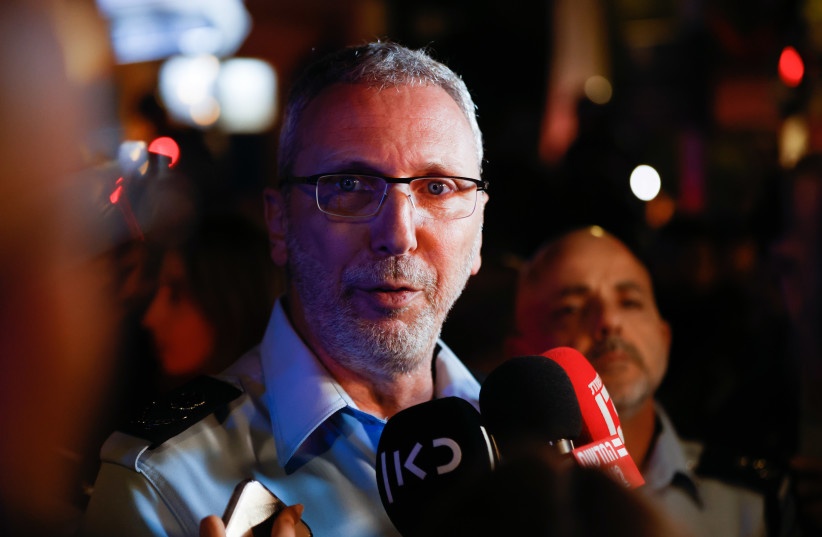National Security Minister Itamar Ben-Gvir cannot use police officer appointments to influence law enforcement operations, the Attorney-General's Office told the High Court of Justice on Sunday but rejected a petition calling for interim orders to freeze the Otzma Yehudit MK's appointments.
"The exercising of authority, including determining the timing of appointments and the date of their publication, cannot be used as a tool for indirect intervention in police operations, which among other things sends messages that have a 'chilling effect' on the chain of command," read the court filing.
AG responds to petition to freeze removal of Eshed
Police appointments must be done in coordination between the commissioner and national security minister through proper procedure according to police ordinances, the Attorney-General's office said in response to a petition filed by the Movement for Quality Government in Israel (MQG) over the firing of Tel Aviv district commander Ami Eshed on March 9.
The original petition from MQG had requested an interim order to freeze the removal of Eshed from his position and a freeze of the ability of Ben-Gvir to appoint police officers. The Attorney-General noted that the first request was already out of date, as Eshed's transfer had been frozen by Attorney-General Gali Baharav-Miara on March 10. Regarding other appointments, the Attorney-General's Office said that there were already rules and laws in place that conditioned the national security minister's appointments, and appointments had been delayed until after Ramadan.
MQG had argued that removing Eshed from his position and moving him to a lower position as a head of training was a political action, born out of a disagreement between the officer and minister over the law enforcement response to judicial reform protests in early March. Ben-Gvir's office had denied this, saying that they were routine appointments.

The Attorney-General indicated that the transfer indeed raised concerns that the appointments were undertaken because Ben-Gvir wanted a stronger crackdown on protests and Eshed had taken a more lenient approach. The national security minister had criticized the police chief for his approach hours before the appointments were announced.
The use of appointments as a tool to indirectly influence operations would be in contradiction with previous legal precedent on the national security minister's abilities to influence police operations. Baharav-Miara had on March 16 issued an opinion that Ben-Gvir's orders and interfering in operations on protests in early March crossed legal lines. This was reinforced by a High Court ruling on March 19 which barred him from these actions.
The Police Law, which passed on December 28, subordinated the police to the government and allowed the national security minister to make general policy and principle decisions for the police. Setting policy for the police was differentiated from the ability to give direct orders for ongoing operations.
